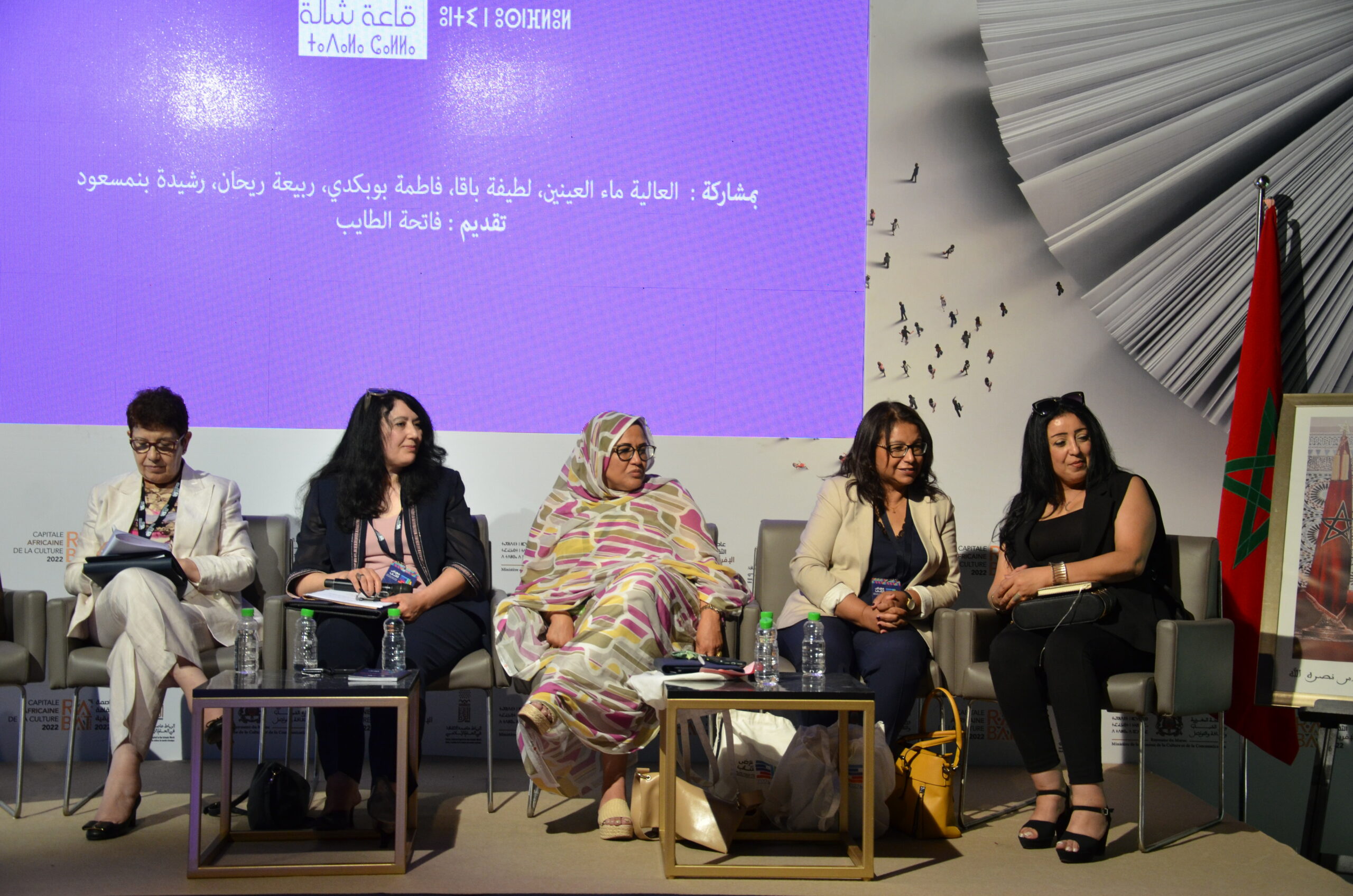
“We need to write our anger in a way that resembles us”. Latifa Baqa

“We need to write our anger in a way that resembles us”. Latifa Baqa

“We need to write our anger in a way that resembles us”. Latifa Baqa
To end the International Publishing and Book Fair with a strong presence and an even stronger subject, the Fair organised a meeting on the last day, June 12th at Chella Hall with women with a creative identity, between cinema and writings and the art of criticizing,
a panel animated by Fatiha Etayeb, gathered Latifa Baqa, Alia Maelainin, Fatima Ali Boubekdi and Rachida Benmessaoud. Ms Fatiha Etayeb opened up the meeting by emphasizing that women are rewriting the world in their own artistic way, to show a particular human aspect as seen through their eyes and lived through their experiences.
The writer, university teacher and critic Rachida Benmessaoud who is deeply interested in women’s affairs pointed out that both men and women can write feminine words, it is not a gender related specialty. The writer Gaustave Flaubert stated according to Mme Benmessaoud, that Mme Bovari is him and Ghada Al-Samman said that a certain male character in her books is just an embodiment of her. Mme Benmessaoud took us back to Moroccan history by mentionning Moroccan male writers who supported feminine movements such as Moulay Rachid Abderrazak with his book. Mme Rachida Benmessaoud wrote many books to share her thoughts on feminine movements and she is proud of all the critical opinions she received. She also mentioned the icon Fatima Mernissi, who used to invite people to write, talk and express their feelings. Mme Benmessaoud belives that feminine writing and literature is headed towards a new change of paradigm that will result in great achievements. Alia Maelainin, critic and researcher, writer of many books about women, poetry, sahraoui culture and feminine causes, walked us through the feminine presence in Moroccan history and literature. Latifa Baqa an activist and writer, stated that as a woman, she writes about a pain that men will never experience, both biological and psychological. She described the society we live in as poisonous; and says that writing releases her from all that poison and liberates her on many levels. Writing according to her should be done with burning passion, with a desire to change something and to tell stories.
“We need to write our anger in a way that reflects us”. Mme Latifa recalled a conversation she had with the deceased writer Zhor El Alaoui, she told her that she could either give birth to books or to kids. She is happy that she did both, that is her proudest achievement. The meeting wrapped up with the arrival of Fatima Ali Boubekdi, a screenwriter and director of many classics such as “Aicha Douiba”. She is against classifying women’s creation because the classification does not apply to men; there is no ‘male creations’! Mme Boubkdi encourages creativity and believes that we all need a chance to be creative in our own way and to speak out.
